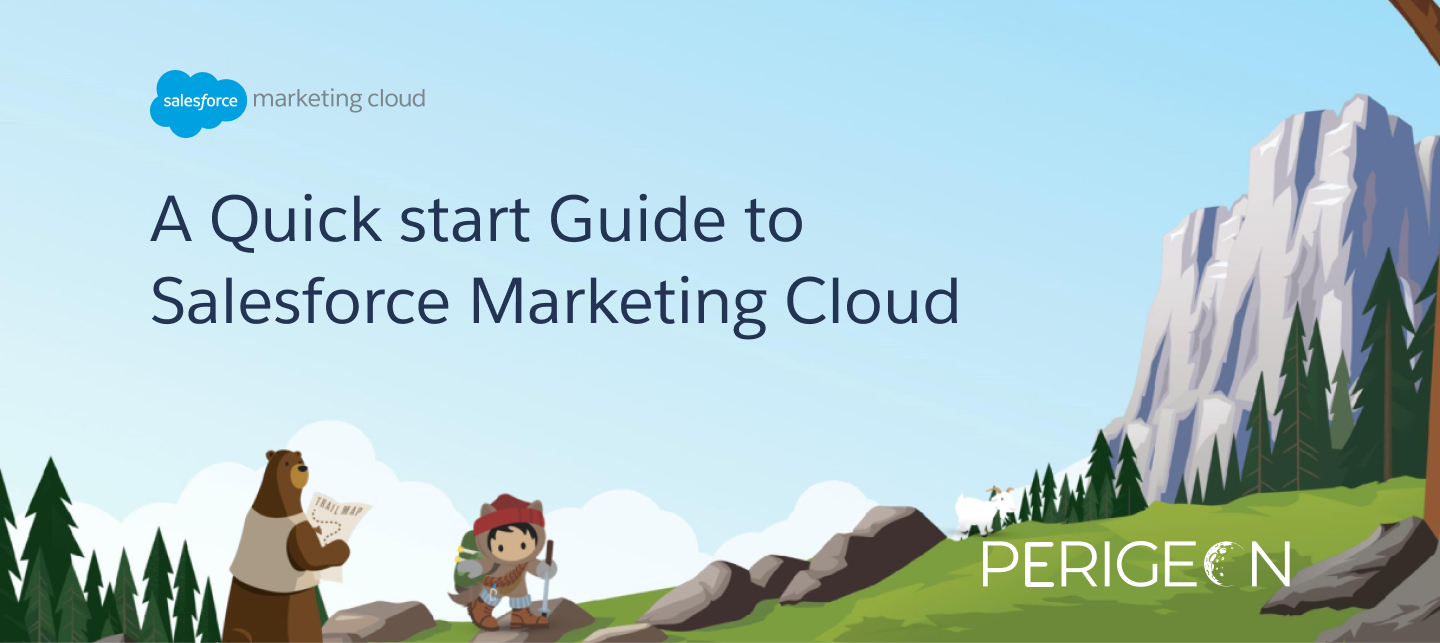Embarking on the journey of implementing Salesforce Marketing Cloud marks a pivotal moment in your organization’s marketing strategy. To ensure a swift and successful launch, a well-executed Quickstart implementation is key. In this blog post, we’ll explore the essential steps and considerations for a streamlined Salesforce Marketing Cloud Quickstart implementation, empowering your team to unlock the full potential of this powerful marketing automation platform.
Defining Your Marketing Objectives: Before diving into the implementation process, it’s crucial to clearly define your marketing objectives. Whether it’s enhancing customer engagement, driving lead generation, or optimizing email campaigns, having a well-defined set of goals will guide the configuration and customization of Salesforce Marketing Cloud to align with your business needs.
Data Assessment and Migration (Data Clean-Up and Organization):
- Evaluate and clean up your existing data to ensure accuracy and consistency. Salesforce Marketing Cloud relies on clean, organized data for effective segmentation and targeting.
- Migrate relevant customer data from your existing CRM or databases to Marketing Cloud, ensuring a seamless transition and a unified view of customer information.
Configuration and Customization (Quickstart Templates and Configurations):
- Leverage Salesforce Marketing Cloud’s Quickstart templates and configurations to expedite the setup process. These templates provide pre-built structures for common marketing use cases, saving time and effort in creating campaigns and journeys from scratch.
- Customize these templates to align with your brand, messaging, and specific campaign requirements.
Subscriber Management (Building and Managing Subscriber Lists):
- Implement subscriber management by creating and organizing lists of subscribers within Marketing Cloud. Utilize segmentation rules to tailor communications based on specific criteria, ensuring targeted and personalized messaging.
- Set up preference centers to empower subscribers to control the frequency and type of communications they receive.
Email Campaign Creation (Drag-and-Drop Content Builder):
- Leverage the intuitive drag-and-drop Content Builder within Marketing Cloud for creating visually appealing and engaging email campaigns. Customize templates, add dynamic content, and utilize personalization features to enhance customer experience.
- Implement A/B testing to optimize email campaign performance by experimenting with different subject lines, content, or send times.
Automation and Journey Building (Automation Studio for Streamlined Workflows):
- Utilize Automation Studio to create automated workflows that streamline marketing processes. Whether it’s drip campaigns, welcome series, or lead nurturing, Automation Studio simplifies the execution of complex marketing tasks.
- Build customer journeys using Journey Builder to map out and automate personalized customer experiences, ensuring timely and relevant interactions at every touchpoint.
Analytics and Reporting (Einstein Analytics for Actionable Insights):
- Activate Einstein Analytics within Salesforce Marketing Cloud for advanced data analysis and actionable insights. Monitor key performance indicators (KPIs), track campaign success, and identify areas for optimization.
- Customize dashboards and reports to provide stakeholders with a comprehensive view of marketing performance.
Training and Knowledge Transfer (Empowering Your Team):
- Conduct comprehensive training sessions for your marketing team to ensure they are well-versed in using Salesforce Marketing Cloud. Provide documentation, tutorials, and ongoing support to empower them to maximize the platform’s capabilities.
- Encourage knowledge sharing and collaboration within the team to foster continuous improvement and innovation in marketing strategies.
A Salesforce Marketing Cloud Quickstart implementation sets the stage for rapid marketing success. By focusing on strategic planning, efficient data management, template-driven configurations, and user empowerment, your organization can harness the full potential of Marketing Cloud. As you launch and optimize campaigns, continuously monitor performance metrics, gather feedback, and iterate on your strategies to ensure sustained success in the ever-evolving landscape of digital marketing.
Perigeon Software goes beyond being just a tech solutions provider; we’re your dedicated partners on the journey to success. We’ve forged strong alliances with industry leaders such as Salesforce, dbt Cloud, and BigCommerce to bring you more than mere services we bring innovation personalized to your unique needs.
With Salesforce, we’re not just implementing CRM solutions; we’re helping you foster meaningful customer relationships.
At Perigeon, these partnerships are more than just collaborations – they signify our commitment to making technology work intimately for you, ensuring your business not only adapts but thrives in today’s dynamic landscape.
Drop us a mail at possibilities@perigeon.com to discuss your business requirement.







